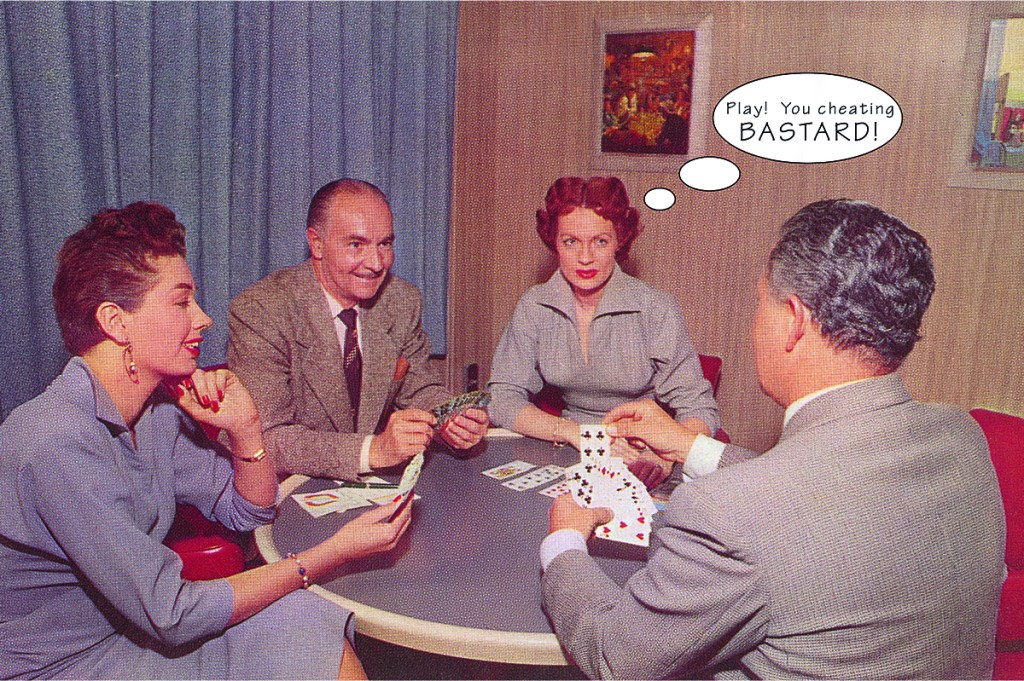This article is in
The Spectator’s December 2019 US edition. Subscribe here.
‘If you don’t get your act together,’ I told my husband, Bobby, ‘I’m going to have to find a new partner.’ In life, I had no doubt he was the one. In bridge, it was another story.
The four-person game seems to have evolved as a distinct form of whist in the 19th century. Today, people commonly explain it as a more complicated version of spades. It begins with bidding: each player opens his hand, counts his points (aces are four, for example; kings are three) and determines which of his suits are strongest. Teams of two then try to communicate what cards they have through a set of predetermined codes called conventions. In theory, these conventions should mean the same thing when uttered by any player. In practice, there are myriad factors which alter their meaning — including whether your partner is bullish or bearish. It’s therefore incredibly important for partners to be on the same page, not just about the language and the relevant terms, but also about the strategy.
The game is a perfect microcosm of marriage: communication with your partner is of the utmost importance; without trust and responsibility, the game entirely unravels. And there’s something else too. After the bidding is over, one person, the dummy, sits out the actual cardplay. When it’s your turn to be dummy, you want to look across the table and have absolute faith that your partner, who is now playing your hand as well as his, can represent the team well. In the year Bobby and I have been married, I’ve learned the same is true of marriage. Sometimes it’s not a group effort. Sometimes one person has to be entirely responsible for something — as mundane as grocery shopping or as sacred as restaurant reservations — and all the dummy has to do is sit there and trust that things are being taken care of.
As a general rule, I’m not great at being the dummy. I backseat drive — never in actual cars, of course, where I’m undeniably out of my league, but everywhere else. I find it impossible to relinquish control. It’s therefore a humbling experience every time you play cards to have to entirely place responsibility and trust into another person’s hands. It’s also part of what makes bridge such a mentally and emotionally stimulating game.
Having grown up in a highly competitive games-playing household, I’ve had many years to hone my skills of defensive maneuvers and aggressive stratagem. This makes me a very demanding partner and, sometimes, unpleasant competition. For many months, I rejected Bobby’s advances: our courtship had been brief, but when it came to his proposal to be bridge partners, I took my time and tried to decide judiciously. I wasn’t sure that such a venture would be conducive to the long-term health of our relationship.
With bridge, being lucky enough to have been dealt a great hand — or being lucky enough to have a great partner — is unquestionably important. Life, it occurs to me, is similar. In bridge, there are conventions and rules prescribed for every circumstance. Life is a bit messier and more off-script and I’m lucky to have a wonderful partner by my side. Would it be too much to admit it’s worked out…in spades?
This article is in The Spectator’s December 2019 US edition. Subscribe here.


























